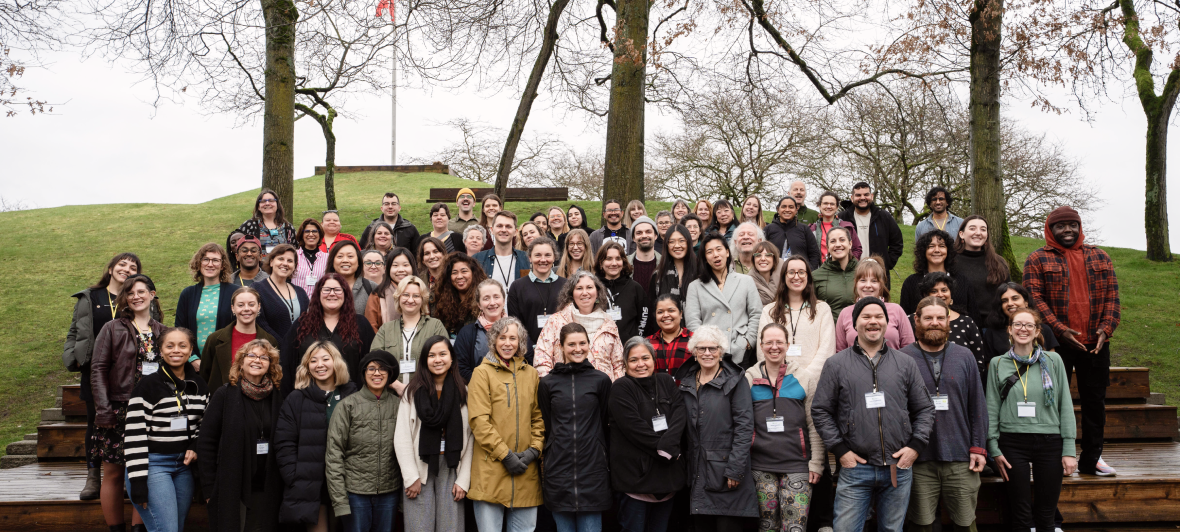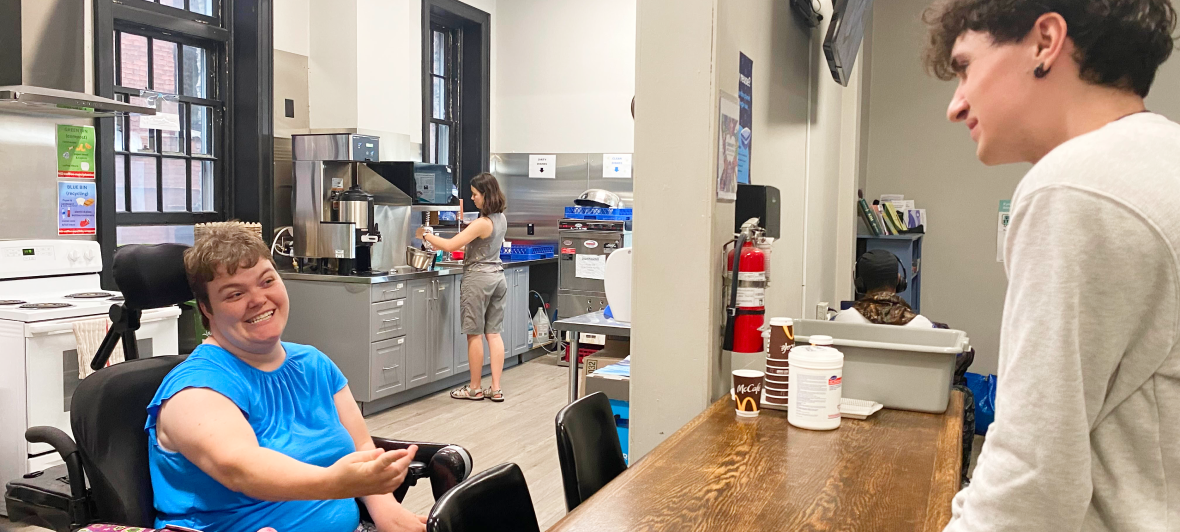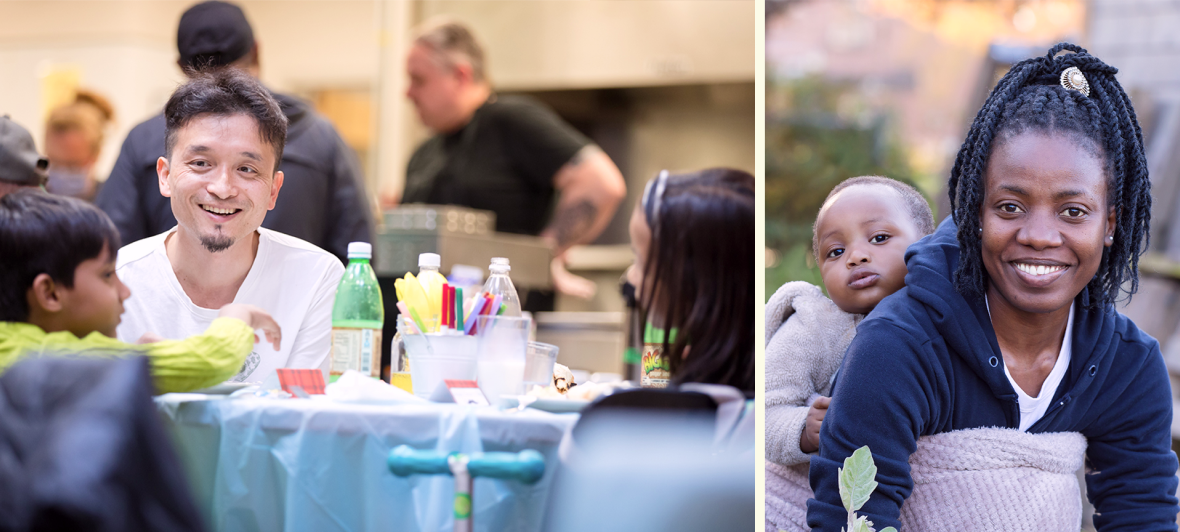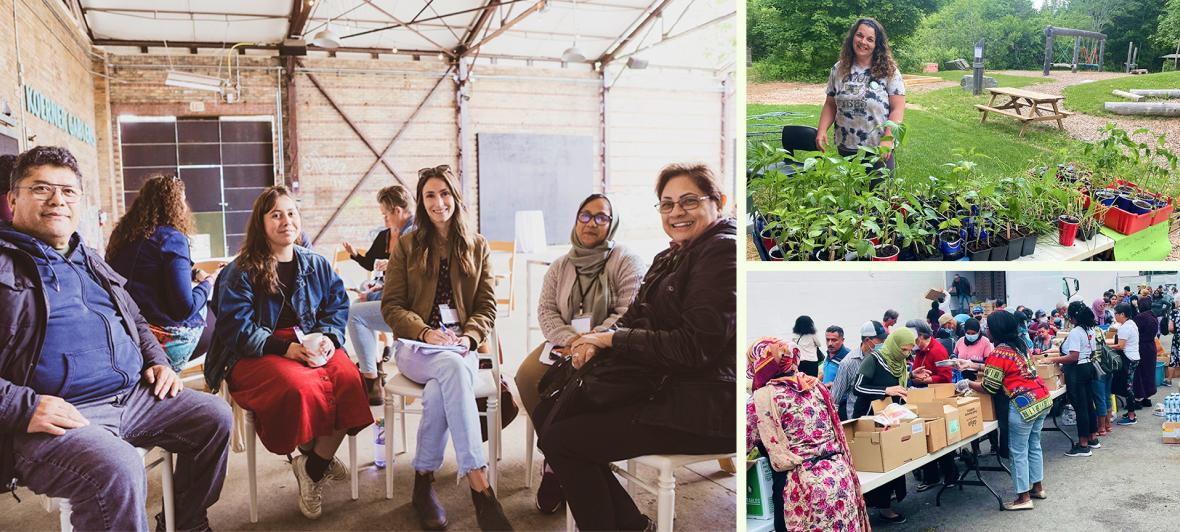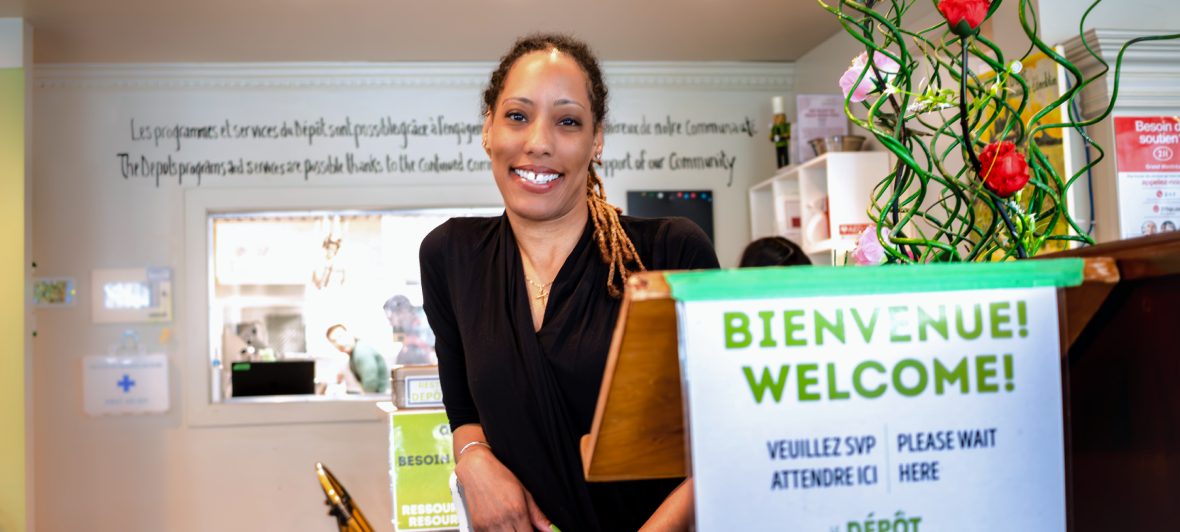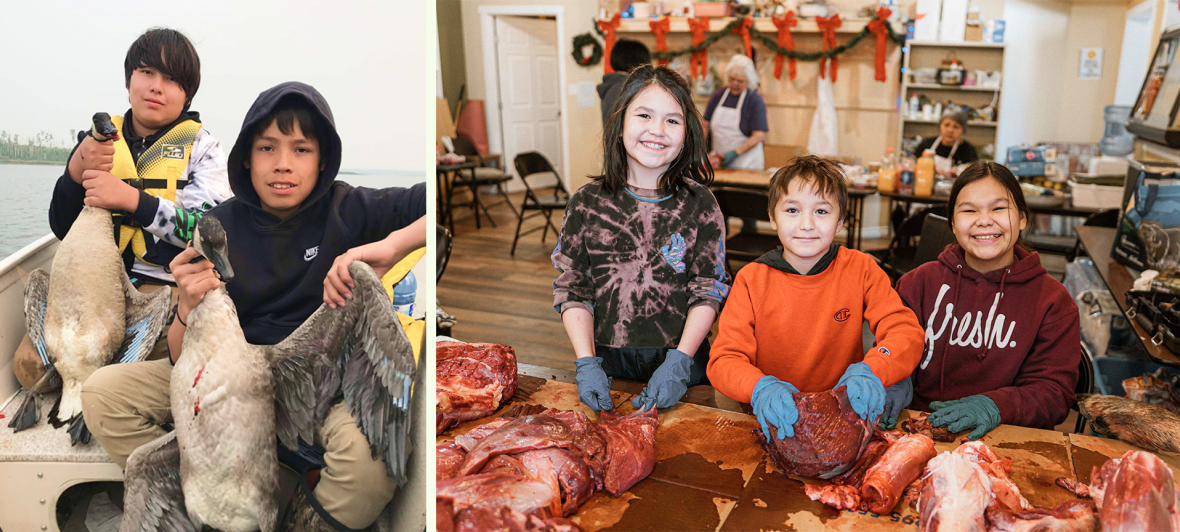

At the Mind Your Food camp in Frobisher Lake, SK. (Left photo by Rebecca Sylvestre, 2023; right photo by Jazz Moise, 2023.)
Time on the land
It was dusk and daylight was fading. In a few hours, the sunset would be reflected in the lake and the teepee and lodge silhouetted against the sky.
The campers were making the most of the remaining daylight. Similar to camps from previous years, the youth were hanging out with Elders, family members, and hunters. Over a fire, they were enjoying some quiet banter.
But three people were missing from the group. Early that morning, two boys had gone hunting with Dwayne, one of the hunters. They had left on the camp fishing boat and hadn’t yet returned.
“We were wondering what was going on,” recalls Rebecca Sylvestre. Rebecca is the Program Manager for Turnor Lake and Birch Narrows Community Food Centre (CFC), which runs the camps. She joins the youth, Elders, and hunters each year for this time on the land.
“Then here they come around the corner. And they have geese and a moose in their boat! They were so excited.”
Welcome to Mind Your Food (MYF). It’s a hands-on, food-focused program that promotes positive mental health among youth. Through MYF, youth improve their food skills, take pride in their cultural identities, and connect with their communities.
MYF is run in seven communities by local community food organizations from our network of partners. Among them are five Indigenous-serving organizations, three of which are Indigenous-led. By running MYF, these Indigenous-serving organizations help address a crucial gap: In Canada, Indigenous youth have limited options for culturally appropriate mental health supports.
That’s why Turnor Lake and Birch Narrows CFC runs MYF as a week-long summer camp for Indigenous youth.
The camp—a departure from MYF’s usual 11-week format—allows youth to spend an intensive stretch of time on the land. At Frobisher Lake in Northern Saskatchewan, they gather to learn from Elders. Building fires and building trust, they talk about topics like grief and domestic violence, and they connect with their cultures. They cook and eat together. And like the two boys who returned with a moose and geese, they hunt.
Thinking back to last year’s camp, Rebecca reminisces about the two boys’ pride as they returned to their fellow campers. “That proudness that those two boys held when they were coming up the lake. They said, ‘Take a picture of me. Can you send it to my mom?’ It’s the part I was most proud of.”
But for Rebecca, MYF camps aren’t only about instilling pride. The time on the land also serves a bigger purpose. “A lot of our cultures are disappearing, but the one thing we’re fighting so hard for is to make sure our kids have a relationship with the land.”
“So the camps are very important,” she continues. “Because the government also told us, ‘If you’re not using the land, then we’ll take it.’ We need to show our kids that as much as they love being on the land, we have to keep fighting for it, generation to generation.”
